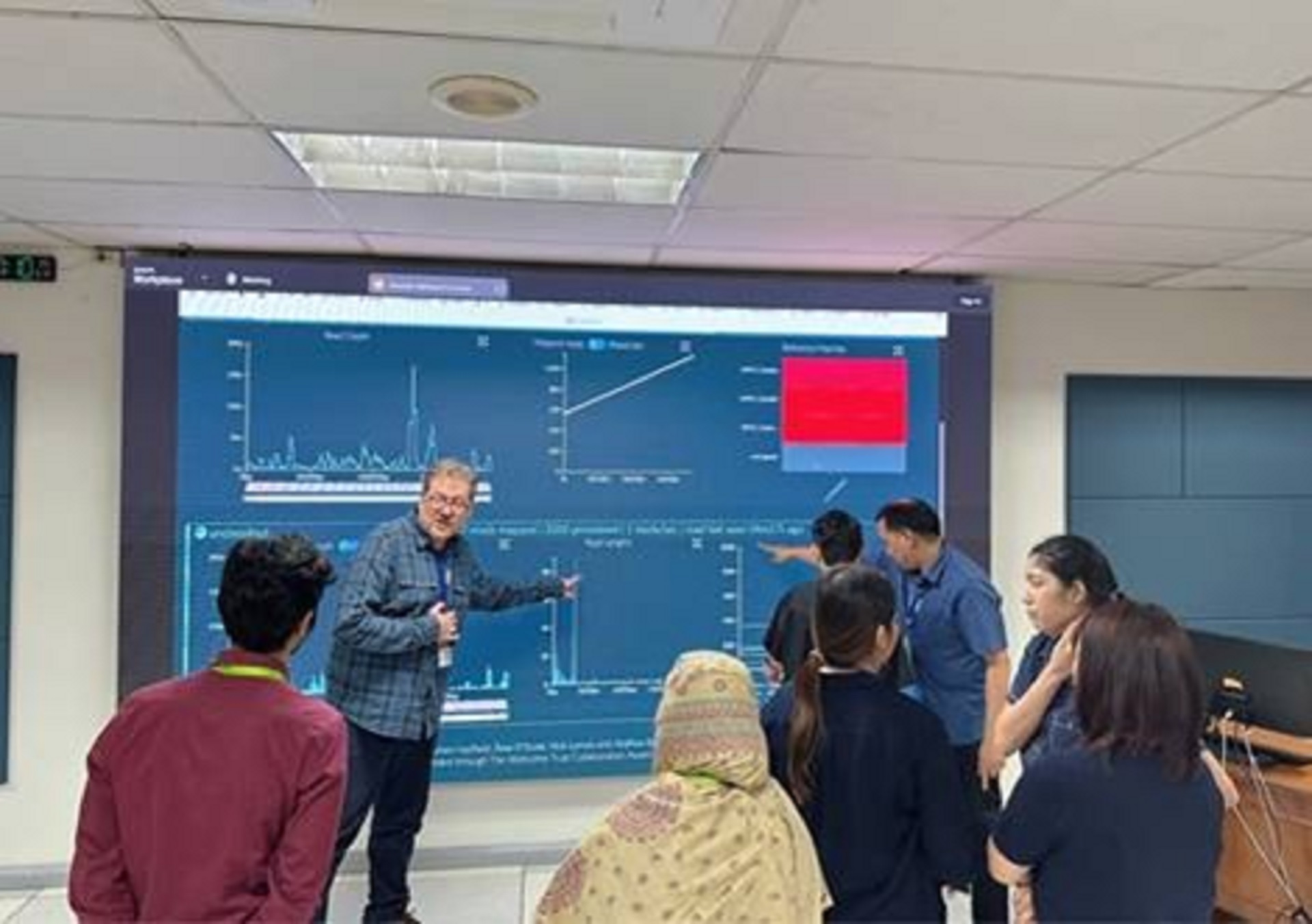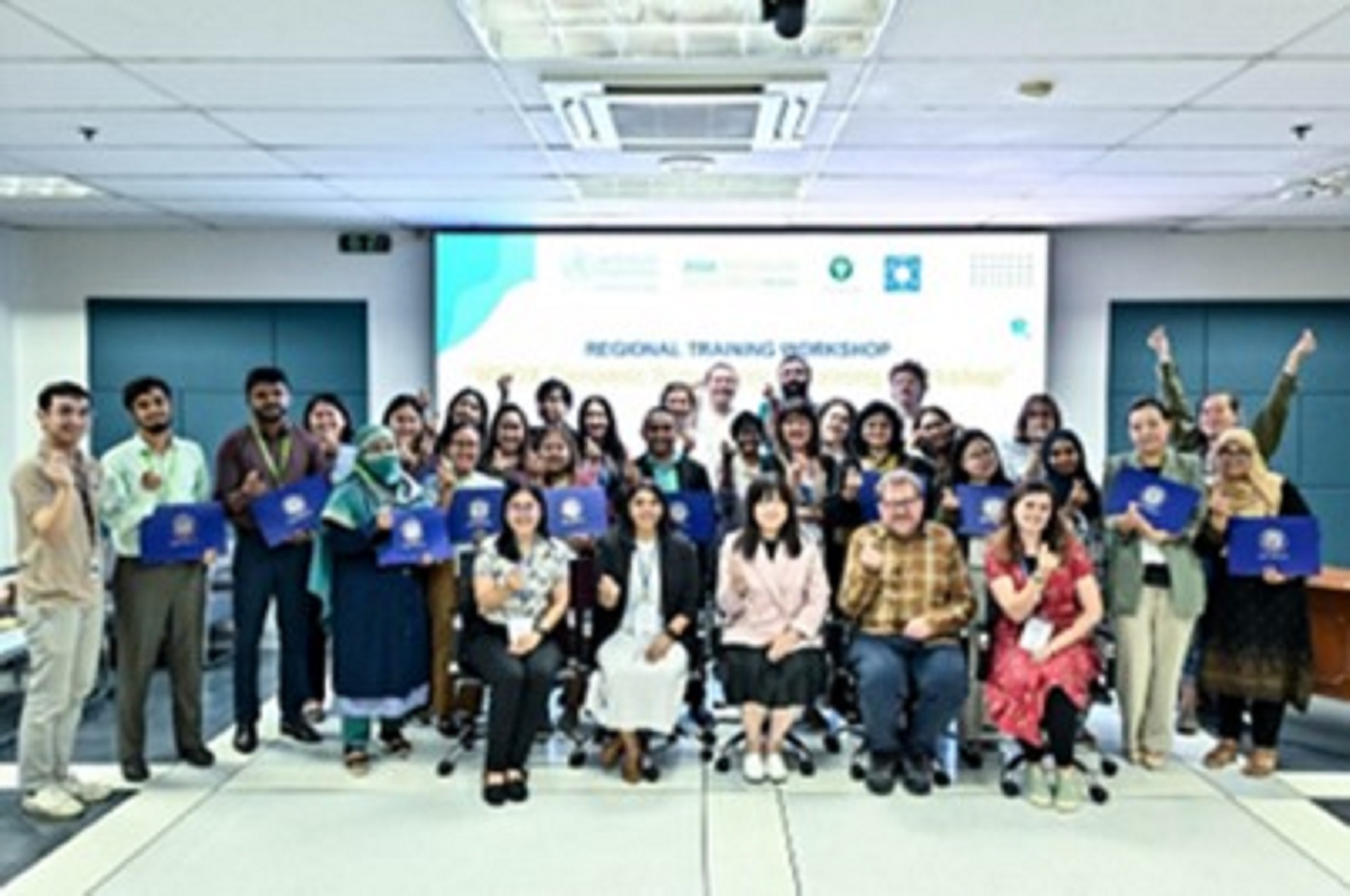A Regional training workshop on Mpox genomic surveillance concluded in Nonthaburi, Thailand this week, equipping laboratories across the WHO South-East Asia Region with critical skills in genomic epidemiology, sequencing, data analysis to ensure timely detection and response to outbreaks.
Hosted by the Department of Medical Sciences (DMSc), Ministry of Public Health, Thailand, in collaboration with Duke-NUS Medical School’s Asia Pathogen Genomics Initiative (Asia PGI), the ARTIC Network, and WHO, the workshop brought together laboratory experts from across the Region.
The five-day training held from 10 to 14 March in Nonthaburi, Thailand brought together 16 participants from Bangladesh, Bhutan, India, Maldives, Sri Lanka, Thailand, and Timor-Leste for intensive hands-on training, gaining expertise in sequencing technologies and bioinformatics.

(Hands on training during the workshop)
(Photo credit: NIH Thailand)
The initiative comes in the wake of the multi-country Mpox outbreak that began in 2022, spreading rapidly beyond historically endemic areas, prompting international concern and a coordinated public health response. Initially concentrated in Europe and the Americas, sporadic cases and clusters were later reported across other regions, highlighting the need for global surveillance and preparedness. Though the WHO South-East Asia Region reported relative fewer cases compared to other parts of the world, the outbreak underscored the urgent need for global preparedness for stronger genomic surveillance and diagnostic capacities to ensure early detection and effective response.

Dr Andrew Rambaut, University of Edinburgh and ARTIC Network, leading participants through the data analysis process for mpox genetic sequence data (photo credit: NIH Thailand )
“The Mpox training workshop, not only provided participants with viral sequencing and bioinformatics skills, but also brought together a network of passionate regional and global genomics experts that can serve as trusted partners for support and collaboration in the face of future outbreaks,” said Dr Ruklanthi de Alwis, Deputy Director at the Centre for Outbreak Preparedness, Duke NUS
Participants engaged in hands-on training, gaining expertise in ARTIC-tiled amplicon sequencing, Nanopore and Illumina data analysis, and the application of bioinformatics tools such as EPI2ME, NextClade, and Squirrel. Discussions also emphasized data sharing best practices and the broader applications of genomic epidemiology beyond Mpox.
“This workshop has provided a valuable platform to enhance technical capacity, standardize genomic surveillance protocols, and promote collaboration among national and regional public health laboratories. Through hands-on training, case studies, and discussions, we have not only strengthened our technical knowledge but also reinforced the importance of data-driven public health interventions in managing MPOX outbreaks," said Dr Pilailuk Akkhaphaiboon Okada, Director, THAI-NIH
The workshop featured expert facilitators from the University of Edinburgh, University of Birmingham, Duke-NUS, and Thailand’s Department of Medical Science (DMSc), which is the reference laboratory for medical laboratories in the country and also serves as the WHO reference laboratory in the Region
This initiative is part of WHO’s ongoing commitment to enhancing regional laboratory capacity and genomic surveillance for emerging infectious diseases.
"Strengthening regional laboratory capacity through initiatives like this is key to improving outbreak preparedness,” said Dhamari Naidoo, WHO’s focal point for public health laboratories in the Region. she emphasized the importance of sustained collaboration and knowledge-sharing in strengthening outbreak preparedness.

“Participants and trainers of Mpox genomic surveillance workshop, Thailand”
(Photo credit: NIH Thailand)
As participants return to their respective institutions, the skills acquired during this workshop will contribute to improved genomic surveillance systems, enabling faster and more effective public health responses to better protect communities across the Region from future health threats.
